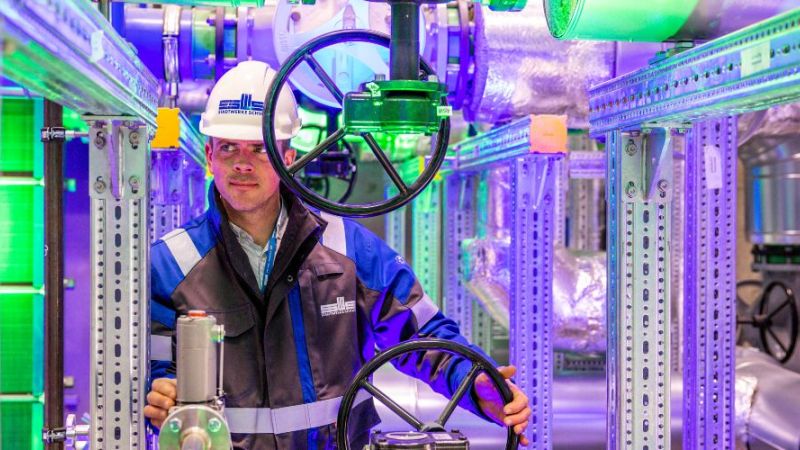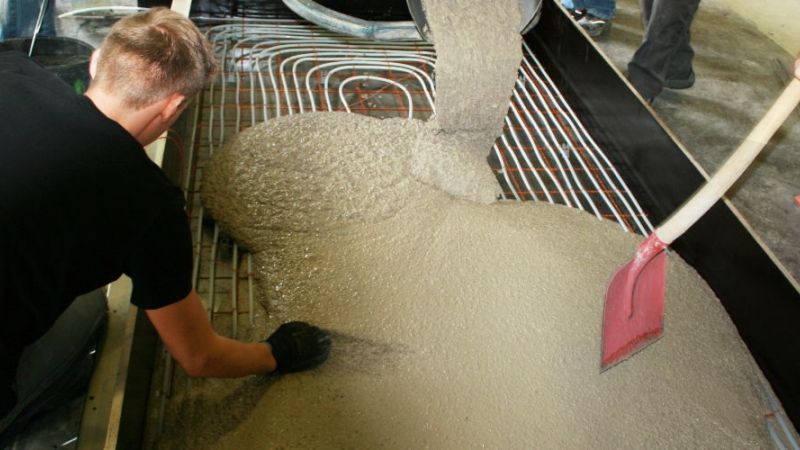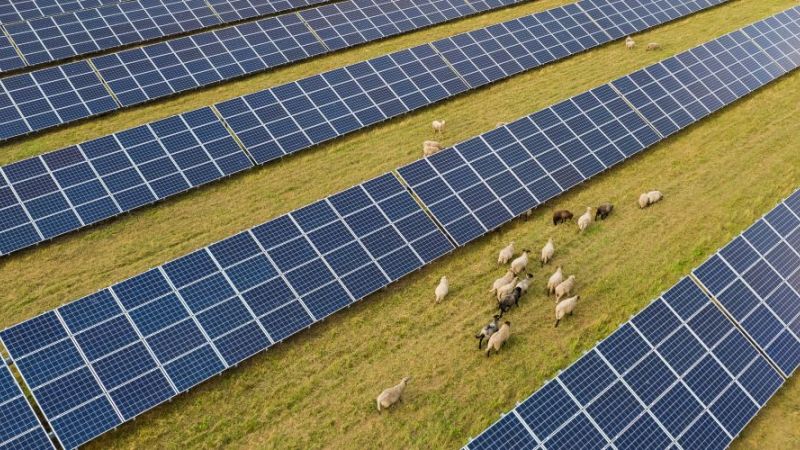Mission Transfer
"We are strengthening the role of energy research as a driver of progress in the economy and society - through transparency, participation and practical orientation."
Successful research benefits from a long-term funding framework. This creates the necessary space to enable progress, regression and further development in the research process. The focus is always on generating the innovations required to achieve the goal of a climate-neutral and secure energy system.
The success of research funding is most visible when the results of the projects are applied in practice. The transfer of innovations therefore plays a central role in the energy transition. The BMWK's project funding therefore focuses in particular on ensuring that these innovations quickly become marketable new business models, products and services. To achieve this, the BMWK is supplementing the existing project funding format with new, agile formats in the 8th Energy Research Programme. In addition, relevant stakeholders are to be more closely involved in research projects, thereby strengthening the socio-technical transformation of the energy system. In this way, the Ministry aims to increase the dynamics of innovation and transfer and make consistent use of the agility of a learning energy research programme.
The energy transition requires qualified specialists in the skilled trades, industry, research institutions and local authorities. These skilled workers are an important prerequisite for the resilience of the entire system. With every step forward in the reorganisation of the supply systems, the demand continues to increase, especially as new value chains are being created in Germany as a result of the energy transition. In order to expand the necessary personnel capacities, extensive training and further education measures are required. Within the energy research programme, the BMWK supports the qualification of young scientists within the framework of project funding. The BMWK's energy research networks strengthen the development of expertise in research institutes, companies and other institutions through networking and enable bridging between active research and practical players such as local authorities, municipal utilities, energy suppliers and users.
1.1 Qualifying young researchers in funded projects
The cooperation between young scientists and experienced scientific staff within the framework of funding projects anchors practice-relevant energy research topics in university education. In order to transfer the resulting findings to industry more quickly and to qualify young researchers within the funding projects, the BMWK would therefore like to facilitate stronger networking between personnel. This is to be achieved through research work in (or in close co-operation with) companies. Accordingly, the BMWK places a strong emphasis on dovetailing science and industry when selecting funding projects in the Energy Research Programme.
1.2 Expand expertise in research institutes, companies and many other institutions
The exchange of expertise between research institutes, companies and many other institutions is to be expanded in order to accelerate the energy transition, with the many research projects in universities, research institutions and companies forming a large pool of energy technology knowledge. In order to make even better use of this potential, the players involved should be more strongly sensitised or empowered for future applications and business models. Target group-specific technical communication should also contribute to this by means of good practice examples.
1.3 Strengthening networking between research and practice
The BMWK wants to strengthen networking between research and practice. With several thousand active members and regular events, the BMWK's energy research networks form an established forum for the exchange of expertise between academic research and practitioners such as companies, energy suppliers, local authorities and planning offices. In order to better support the transfer of application-oriented research work to companies, the relevant industry and trade organisations (chambers of industry and commerce, trade conferences of the federal states and chambers of trade) are specifically informed about the content of the network work and involved.
1.4 Utilising all social potential
In order for innovations to be accepted in practice, all social potential must be utilised. For example, research work and its subsequent transfer into application can benefit from involving all relevant social groups more closely in projects. By involving those affected at an early stage, local circumstances can be better taken into account and the acceptance of energy policy measures can be increased. The involvement of women in research projects should also be promoted.
Energy research should contribute to greater innovation dynamics. At the same time, the time to market of project results must be shortened in order for the energy transition to succeed. Innovation management and portfolio management focussing on entrepreneurial drivers are important levers for this. By promoting research alliances, the BMWK is also focusing on risk management and aims to better utilise synergy and exploitation potential.
2.1 Continuously develop exploitation options for project results and support their realisation
In utilisation plans for research projects, partners in the alliance present the basic assumptions on which the projects are based. These are systematically analysed and continuously reviewed as part of the project funding. This enables improved innovation management in the project consortia. In this way, new business opportunities can be identified during and after the project period, market studies can be promoted and contacts to development and market partners can be arranged. The aim is to continuously develop exploitation options and support the concretisation of research results.
2.2 Addressing priority fields of technology in a portfolio strategy with a diversified innovation pipeline
Priority technology fields should be addressed in portfolio strategies with a diversified innovation pipeline. Due to the increasing thematic differentiation of energy research and the growing pressure for efficiency, portfolio aspects are becoming more important in funding decisions. As a result, attention is paid to a balanced mix of topics, players and risks in project funding in order to utilise opportunities. One focus of BMWK research funding is on application-oriented projects with a medium to high technology readiness level (TRL). Early-stage, high-potential projects (with a low TRL) are also funded in some cases to spread the risk.
Research needs in a dynamically changing environment should be addressed more quickly and effectively. The BMWK is therefore constantly developing the processes and formats of research funding to make them more agile. Within a learning funding programme, agility means short implementation deadlines, a high degree of reflection on new findings and a high degree of flexibility in the event of unforeseen events and requirements.
3.1 Further develop project funding processes and formats
Accelerated application processes, small-scale, short-term projects and an intensive, targeted evaluation of ongoing projects should create fast learning loops. Small projects with a streamlined application process are particularly suitable for clarifying urgent research questions and funding requirements in a focussed "trial and error" approach. The BMWK is therefore expanding and strengthening the micro project funding format. In addition, the evaluation and monitoring of ongoing projects will be geared towards recording progress in a timely manner. In addition, the BMWK wants to further simplify and adapt processes in order to attract more small companies and start-ups as stakeholders and make it easier for them to access energy research funding.
3.2 Supplementing proven project funding practice with new competitive formats and experimental approaches
The BMWK is supplementing its proven project funding practice with new competitive formats and experimental approaches. Established and new research players compete for the best ideas in competitions. Such approaches are therefore initiated for specific, focussed issues. Experimental approaches in energy research should also serve to test research results in a real application context and increase the visibility of good solutions. This takes place within the framework of individual demonstration and model projects, but also on a larger scale in systemically designed experimental spaces with longer-term transformational learning objectives.
3.3 Agile project funding
The central format of the energy research programme is project funding with collaborative projects generally planned over three years. The process sequences offer the funding recipients involved planning security. However, the nature of research also includes the progress of knowledge during the project period and the revision of work plans in line with the project objectives. In the event of unforeseeable developments, additional project parts or missing expertise can therefore be docked onto ongoing collaborative projects as part of agile project funding.
Developing expertise and innovations in the key technologies that are crucial for climate neutrality and securing access to the entire value chain are important objectives of energy research funding. The guiding principle here is to achieve comprehensive (European) technological sovereignty. At the same time, the goal of technology leadership in terms of export potential remains in focus.
4.1 Promoting German manufacturers and research collaborations with European partners
Energy research funding recognises and closes research gaps so that German manufacturers can establish and secure technological leadership in key technologies. Special attention is paid to the development of manufacturing and production processes. The funding measures are intended to support industry in key technologies for the energy transition and broaden the player base. To this end, the BMWK supports research collaborations with European partners as part of the EU-KOM SET-Plan if this strengthens the expertise and chances of success of project alliances.
4.2 Considering the entire value chain of the energy system
When developing key technologies, the BMWK takes into account the links to the entire value chain that are important for industrial use. Industrial value creation stages must be interlinked. At the same time, the balance of suppliers and system manufacturers must be taken into account, as well as the upstream supply of raw materials and the downstream reutilisation, processing or disposal in the sense of a circular economy. In order to make the energy system less dependent on international sources of limited raw materials, the BMWK is particularly promoting technological developments that reduce or avoid the use of these raw materials. At the same time, concepts for the circular economy are to be developed and trialled for raw material-sensitive technologies.
4.3 Securing the production of renewable energy systems in Germany and Europe
The rapid expansion of renewable power generation is an essential driver of the energy transition. Energy research therefore aims to provide technological support to the domestic industrial base for the manufacture of generation plants and to improve the parameters for the construction, operation and grid integration of the plants. A strong market position for German and European plant manufacturers also creates a good starting position for export potential and a high level of resistance to changes on the global market.
Results from research and development are to be made more readily available for practical application and for subsequent use in research and development projects. In addition, interrelationships are to be made comprehensible to society and barriers to acceptance are to be removed in this way.
5.1 Increase the proportion of open access publications in funded projects
Open science plays a key role in improving the transparency and acceptance of energy and climate policy decisions and in increasing the understanding of complex interrelationships and effects in the energy transition. In project funding, this is therefore to be strengthened by implementing open science approaches as a scientific standard in research. This will make research findings more readily available for practical application and for use in further research and development projects. Research results should be published in accordance with open access standards wherever possible.
5.2 Making data collected from research projects available Open Access and FAIR
In order to make research results more usable, the handling of data collected in funded projects should be based on the FAIR principles (Findable, Accessible, Interoperable, Reusable). As long as there are no business secrets or other reasons to the contrary, research data from funded projects should be published Open Access and provided with appropriate licences.
5.3 Increase the proportion of funded projects with citizen science or citizen participation
In order to involve society more closely in research results, participation formats and citizen science approaches should be trialled in the spirit of an open science culture. This can stimulate the social relevance, co-design and acceptance of energy research and tap into heterogeneous sources of knowledge. This applies in particular to real-world laboratories for the energy transition, demonstration projects and projects on acceptance issues and user behaviour in the energy industry context.
Sprinter targets
Sprinter targets are short and medium-term goals to be achieved within a research mission to support the achievement of a climate-neutral and secure energy system by 2045 through energy research.
- Sprinter target 1: Increase the proportion of women in energy research projects
In order to utilise all potential for the energy transition, the BMWK is aiming to significantly increase the proportion of women in research projects with the new energy research programme. By 2030, the proportion of women at all career levels in the total number of funded energy research projects should at least match the proportion of female graduates from STEM degree programmes. - Sprinter target 2: Continue the real-world laboratories of the energy transition
The strategic funding format of real-world laboratories for the energy transition, which the BMWK first introduced in the 7th Energy Research Programme, will be continued. The funding selection for new real-world laboratories of the energy transition is based on the missions of the Energy Research Programme. - Sprinter target 3: Support agile and unbureaucratic funding formats
The BMWK wants to anchor agile and unbureaucratic funding formats (e.g. micro projects) more firmly in the funding of energy research. For this reason, the Ministry will increase the proportion of funding for research and development each year from 2024 until an appropriate level is reached. To this end, the BMWK will extend the micro-project format to all areas of energy research. - Sprinter target 4: Implement cooperation with SPRIND
The BMWK wants to implement a cooperation with the Federal Agency for Spring Innovations, SPRIND, on agile funding formats. In this way, the ministry wants to increase the contribution of innovations to the energy transition more quickly. SPRIND promotes disruptive technologies. It supports the creation and further development of research ideas that have the potential to become disruptive innovations.






